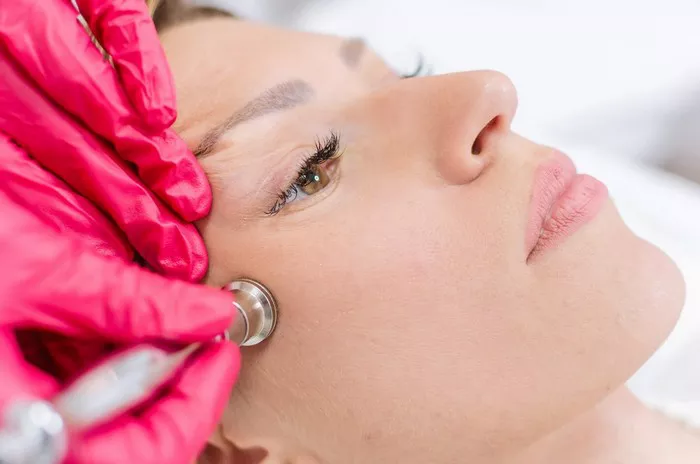Skin pigmentation concerns, such as hyperpigmentation (dark spots) and uneven skin tone, can be frustrating and impact one’s confidence. Microdermabrasion is a popular skincare treatment that many people consider for improving the appearance of their skin. But does microdermabrasion help with pigmentation? In this comprehensive guide, we will explore the benefits, limitations, and considerations of using microdermabrasion to address pigmentation issues.
Understanding Skin Pigmentation
Skin pigmentation refers to the color of the skin, determined by the presence and distribution of melanin, a pigment produced by melanocytes in the skin. While pigmentation is a natural and essential aspect of our skin, various factors can lead to pigmentation irregularities:
Hyperpigmentation: This occurs when there is an overproduction of melanin, resulting in dark spots or patches. Common types include sunspots, melasma, and post-inflammatory hyperpigmentation.
Hypopigmentation: In contrast, hypopigmentation occurs when there is a lack of melanin in certain areas, resulting in lighter patches or white spots.
Uneven Skin Tone: Uneven skin tone refers to an irregular distribution of melanin, causing some areas of the skin to appear darker or lighter than others.
How Does Microdermabrasion Work?
Microdermabrasion is a non-invasive skincare procedure that exfoliates and rejuvenates the skin’s outermost layer. The procedure typically involves the following steps:
Exfoliation: A handheld device, such as a diamond-tipped wand or crystals, is used to gently exfoliate the top layer of dead skin cells, removing impurities and debris.
Suction: Simultaneously, a vacuum-like suction mechanism is used to remove the exfoliated skin cells and stimulate blood flow to the treated area.
Benefits of Microdermabrasion
Microdermabrasion offers several benefits for the skin, which can indirectly help with pigmentation concerns:
Exfoliation: By removing dead skin cells, microdermabrasion can help improve the skin’s texture and overall appearance, reducing the visibility of pigmentation irregularities.
Stimulation of Collagen Production: Microdermabrasion can stimulate the production of collagen, a protein that contributes to skin’s elasticity and firmness. This can help improve skin tone and texture over time.
Enhanced Product Absorption: After microdermabrasion, the skin is better primed to absorb topical skincare products, such as lightening agents or serums, which can be beneficial for pigmentation.
Limitations of Microdermabrasion for Pigmentation
While microdermabrasion offers certain advantages, it is essential to understand its limitations when addressing pigmentation concerns:
Depth of Treatment: Microdermabrasion primarily targets the outermost layer of the skin. It may not be effective for treating pigmentation that originates deeper in the skin, such as melasma or post-inflammatory hyperpigmentation.
Multiple Sessions: Achieving significant results often requires multiple sessions of microdermabrasion. It may not provide immediate or dramatic improvement in pigmentation.
Sun Protection: Following microdermabrasion, the skin can be more sensitive to UV rays. Adequate sun protection is essential to prevent further pigmentation issues and maintain results.
Not Suitable for All Skin Types: Microdermabrasion may not be suitable for individuals with certain skin conditions, such as active acne, eczema, or rosacea.
Combination Approaches
For more effective treatment of pigmentation issues, many individuals opt for combination approaches that include microdermabrasion alongside other treatments:
Chemical Peels: Combining microdermabrasion with chemical peels can enhance the exfoliation process and target pigmentation more effectively.
Topical Lightening Agents: Dermatologists may recommend the use of topical lightening agents containing ingredients like hydroquinone, retinoids, or vitamin C in conjunction with microdermabrasion.
Laser Therapy: For deeper pigmentation concerns, laser treatments can provide more targeted and lasting results.
Consultation with a Professional
Before pursuing any treatment for pigmentation concerns, it is crucial to consult with a dermatologist or skincare professional. They can assess your specific pigmentation issues, skin type, and overall goals to recommend the most appropriate and effective treatment plan.
Conclusion
Microdermabrasion is a popular skincare treatment that offers exfoliation and skin rejuvenation benefits. While it can improve skin texture and indirectly aid in addressing pigmentation concerns, it may not be the sole solution for all types of pigmentation issues. Combination approaches, along with proper skincare and sun protection, may provide more comprehensive and effective results. Consulting with a qualified skincare professional is essential to determine the best course of action for your unique skin and pigmentation concerns.


